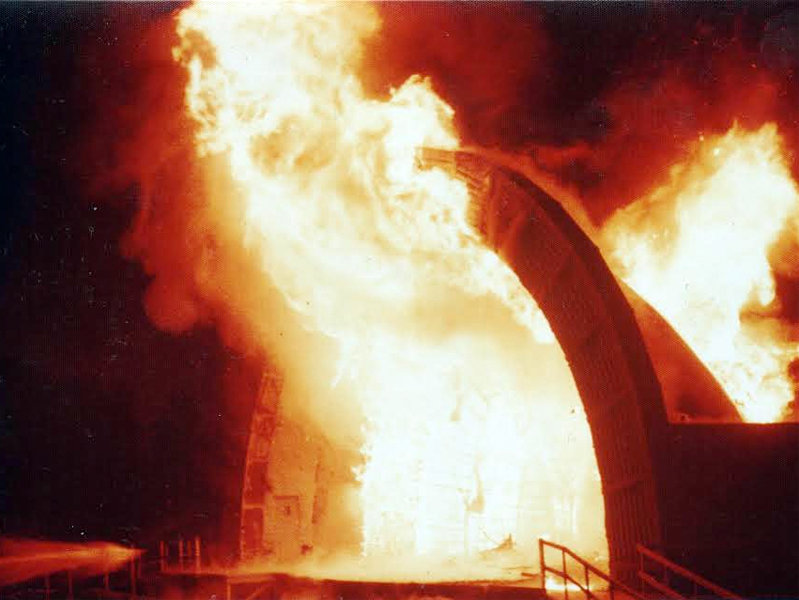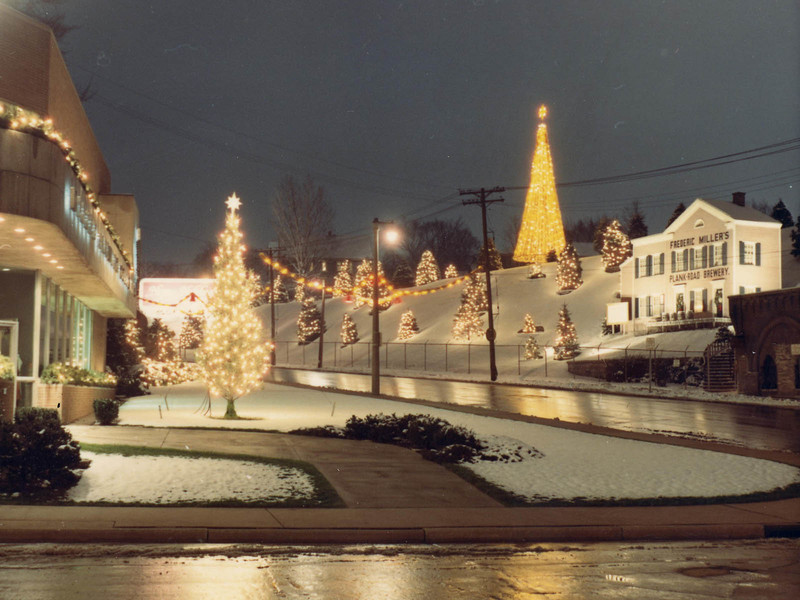Back when smoking was much more accepted in public places, matchbooks were a primo method of promoting one's business, especially in the hospitality and retail games.
Bars, restaurants, bowling alleys, hotels ... just about everyone had a supply of matchbooks on hand for smokers and those matchbooks – often handsomely designed – touted the venue that was gifting them.
Although we don't see promotional matchbooks as much anymore, thankfully there are collectors working to save great examples. One of those collectors – Adam Levin, who manages the Old Milwaukee group on Facebook – shared some gems with us.
Enjoy this striking look back at some old Milwaukee businesses, via their matchbooks.
Avenue Cocktail Bar
Dating back to at least the late 1930s, Avenue Cocktail Bar was, as you can see from the imagery on the matchbook, a Polynesian Tiki-themed lounge that was also known for its Cyclone Room and live musical entertainment. In May 1960, two bartenders were arraigned on charges of allowing minors inside and by early 1961, the bar was closed. After a brief period of attempting to sell Avenue, its fixtures were sold at auction. The site is now occupied by the 1966 Greyhound Building, later renamed the Clark Building after it was purchased by Emory Clark of Clark Oil.
Belmont Hotel
The Belmont was built in 1926, to designs by architect Martin Tullgren, at the southwest corner of 4th and Wells. In its final decades it had become known as something of a low-rent residential place, with a well-known bar and a barber shop. It was torn down in 1996 to make way for the new convention center, but its iconic sign remains a vivid memory for many.
Chris Corners
The real story of Chris Corners is the tender story of Anne and Jim Vollmar, who ran the bowling establishment, founded by Anne's dad Chris, for more than 40 years, along with Anne's brother John and his wife Marion. The two couples were married in a double ceremony in 1941 and they celebrated their 50th anniversaries together at Chris Corners in 1991. They sold the business the following year. In 2002, Anne and Jim died 25 hours apart.
Erdmann's Tavern
Located in a building, now razed, on the northeast corner of 26th and Lisbon, John Erdmann's tap operated until 1977. After an armed robbery that year, the place went up for sale and was replaced by Mike's Tavern, which ran into the 1980s. In 1933, the business was run by Wendelin Kraft, described in a newspaper as, "the state organizer of the Wisconsin Tavern Keepers Association," by by 1935 it was already operated by Christopher Erdmann, John's father. A new industrial building was put up on the site in 2002.
Kohl's
Kohl's needs no introduction here and this beautifully designed matchbook is a reminder of the business' roots in the Milwaukee grocery business. Maxwell Kohl got started in groceries in 1927 and opened his first supermarket 19 years later. By 1962, it was the state's largest grocery retailing chain and a decade later, when a controlling interest was sold to British American Tobacco, it boasted 50 grocery stores, three liquor stores, three drug stores and six department stores. A&P, which bought the grocery stores in 1983, closed them in 20 years later.
Paradise Garden
Located in a striking modern 1960 building on Capitol Drive, just east of Highway 100 that had been built as a Golden Chicken location, Paradise Garden opened in 1961 after an explosion and fire shuttered its predecessor. It's unclear if the "new" Paradise Garden was related to the restaurant of the same name that opened in Downtown Milwaukee in the 1920s, though it seems unlikely. The last reference I find to the restaurant – whose building is now occupied by a religious bookstore – dates to 1979.
Pig'n Whistle
Opened as a drive-in by Bob Normoyle in 1938, the Pig'n Whistle became famous not only for its Big Chief Burger but also as a frozen custard landmark. It closed in 1992 and was replaced by a family restaurant. More recently, the building was razed and replaced with a residential development.
Port Lanes
Port Lanes opened in August 1962 at Brown Port Shopping Center and quickly became a popular league bowling spot. It closed in 1992 and was replaced by a health clinic. Its matchbook design is among the more eye-catching examples.
Ritz Tavern
Although the building is still there, housing a liquor store, the Ritz Tavern only survived into the 1990s. It opened after Repeal at 36th and Center, but moved to 3729 W. Center in 1936, where "Rudy (Krueger) and Les" boasted "the longest straight bar in the city, outside of the downtown district." It appears another Ritz opened at 25th and Fond du Lac in 1938 and afterward Krueger was running the Center Street location alone. Perhaps a spat led to to Les opening a competing Ritz or perhaps both Ritz taverns were owned by the pair.
Reader Ken Berg recalls, "my parents used to take me to the Ritz Bar in the late '50s for an excellent Milwaukee fish fry. At that time it was always called Jerry’s Ritz Bar and it appears a companion location existed at 17th and North called Jerry’s Pheasant Bar. Both had the similar maroon glazed tile." If you know more, tell me in an email.
Strachota's
Strachota’s Milshore Bowl operated on Capitol Drive from 1953 to 1994. When it opened, it was considered state of the art, boasting that it was, "air conditioned by refrigeration, (with) completely automatic pinspotters, no pinboys." The site now sits beneath an Aldi parking lot. By the time Milshore opened, Les Strachota had been running Regent Lanes since at least 1941 in a handsome building at 40th and North. Regent closed around the time Milshore did.
Born in Brooklyn, N.Y., where he lived until he was 17, Bobby received his BA-Mass Communications from UWM in 1989 and has lived in Walker's Point, Bay View, Enderis Park, South Milwaukee and on the East Side.
He has published three non-fiction books in Italy – including one about an event in Milwaukee history, which was published in the U.S. in autumn 2010. Four more books, all about Milwaukee, have been published by The History Press.
With his most recent band, The Yell Leaders, Bobby released four LPs and had a songs featured in episodes of TV's "Party of Five" and "Dawson's Creek," and films in Japan, South America and the U.S. The Yell Leaders were named the best unsigned band in their region by VH-1 as part of its Rock Across America 1998 Tour. Most recently, the band contributed tracks to a UK vinyl/CD tribute to the Redskins and collaborated on a track with Italian novelist Enrico Remmert.
He's produced three installments of the "OMCD" series of local music compilations for OnMilwaukee.com and in 2007 produced a CD of Italian music and poetry.
In 2005, he was awarded the City of Asti's (Italy) Journalism Prize for his work focusing on that area. He has also won awards from the Milwaukee Press Club.
He has be heard on 88Nine Radio Milwaukee talking about his "Urban Spelunking" series of stories, in that station's most popular podcast.







